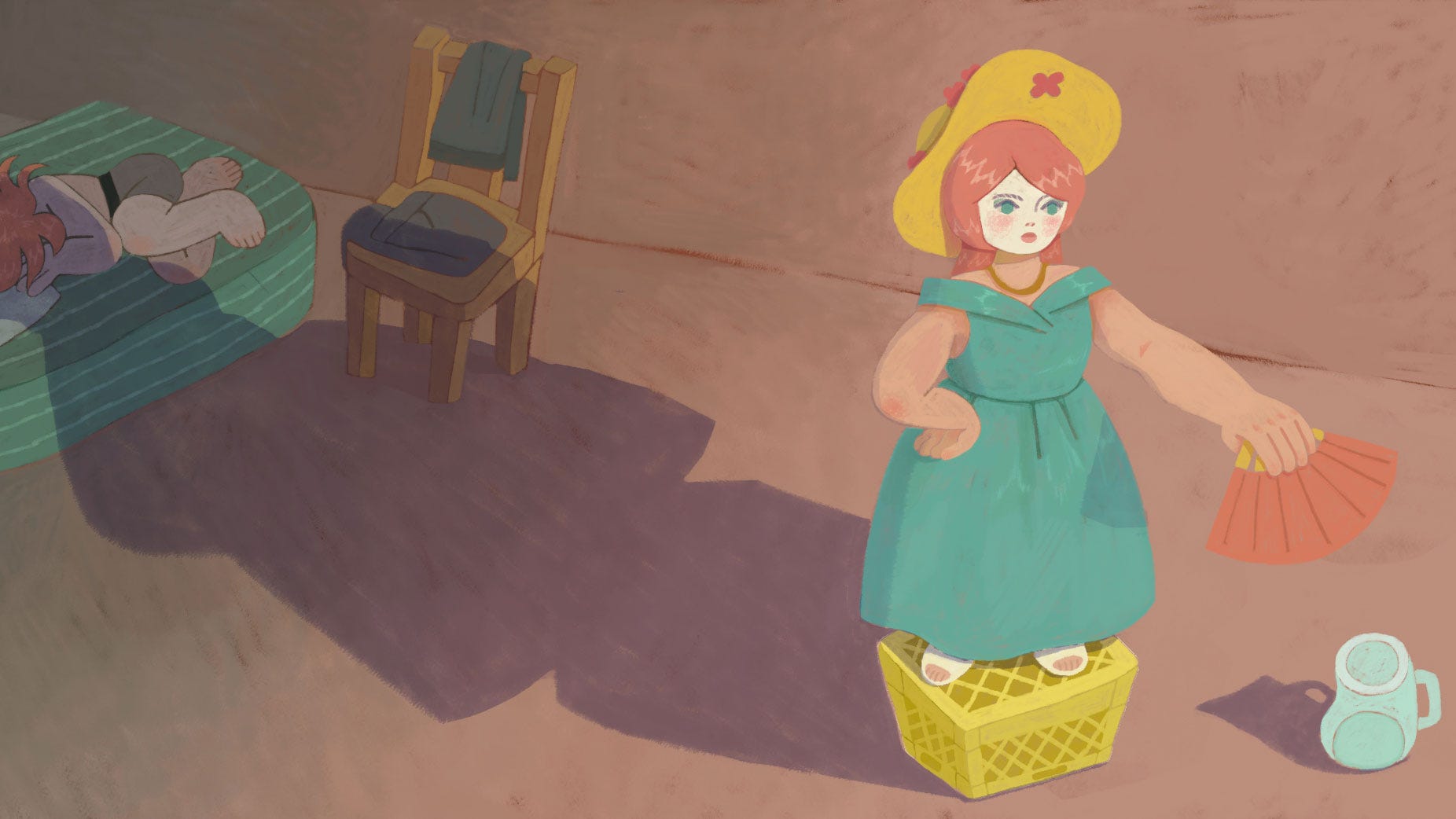The Secret Life of a Professional Statue
How staying perfectly still for tips — despite tourists’ bewildering lack of boundaries — taught me to stand my ground in life.
I was standing on an overturned milk crate on Bourbon Street, in face paint and a ball gown. The world was a blur. My body was entirely still — one hand holding out my huge skirt and the other a paper fan, frozen mid-flutter.
A group of frat boys appeared from the milling crowd around me. They wore Mardi Gras striped polo shirts in purple, green and gold, though it was October. Plastic beads winked on their necks, and they all gripped neon novelty drinks known as Hand Grenades. Though they were just fuzzy swatches in my peripheral vision, I could identify the color-by-numbers attire of tourists in New Orleans.
The group remained a blur because, as usual while working, I gazed only at a softened middle distance, not focusing my eyes. One of the dudes approached, so close I could smell his sugary drunk breath. He clapped his hands a few inches from my face. His palms expelled a little gust of air, cool on my grease-painted nose and cheeks.
I didn’t react. I didn’t look at him, or speak.
For several years in my 20s, off and on, I was a professional statue. Statue was both a noun and a verb. I was a statue; statuing was what I did. My job was, basically, not to react. Unless one of the tourists gave me what I wanted — a tip in the plastic lemonade pitcher at my feet — I gave them nothing.
When I wasn’t statuing, I always gave people what they wanted. I made eye contact. I listened patiently. I was free with my thanks and my apologies. I forgave.
In particular I forgave Toby, my boyfriend of several years, whose name I’ve changed here to protect his privacy. I forgave him for not getting a job, for the long nights I spent listening to stories of his childhood pain, for throwing our bedroom lamp across the room in a temper. I used my statuing money to pay our rent, to buy our groceries. When we were too broke to go to the laundromat, I washed our clothes by hand in the bathtub and draped them over our chain-link fence to dry. Forgiving him was a daily act, a constant renewal.
And above all, I smiled, for Toby’s benefit and everyone’s.


